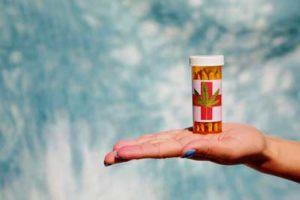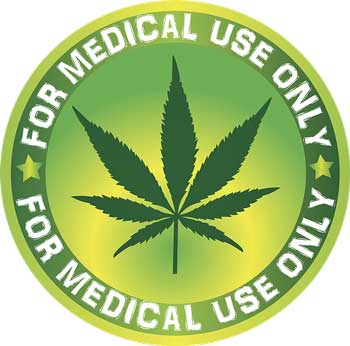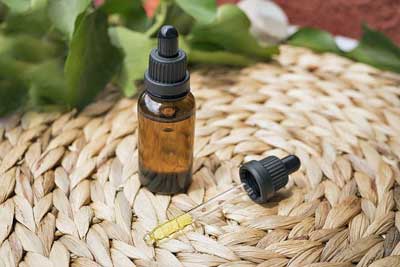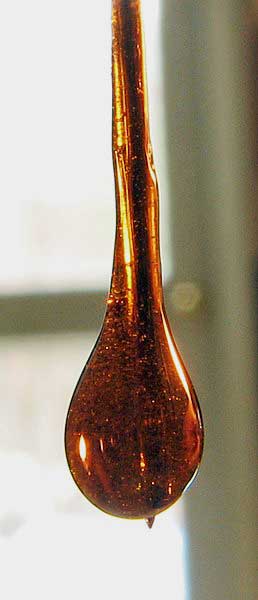Somewhat surprisingly, given how often Cannabis products are used for pain, relatively few studies have assessed its effectiveness in the “quintessential pain condition” – fibromyalgia (FM). Daniel Clauw – a pretty conservative researcher – who is down on opioid use – has said he would love to see clinical trials on Cannabis in fibromyalgia but that the conditions in the U.S. make it difficult. (After the 2020 election fifteen states plus the Wash. D.C. now allow recreational use of Cannabis. Mississippi voters just legalized it for medical use. Oregon voters went further – they approved legalizing psilocybin – the psychoactive substance in mushrooms…)
A recent review found only 5 trials that “were deemed relevant” – four from Isreal, one from the Netherlands (not a surprise :)) and none from the U.S. The good news is that they are all from the past year or two – interest is definitely picking up.
They are a mixed bag. One was an internet survey, another a retrospective review, another a prospective review, a randomized, placebo-controlled, single dose study, and an observational cross-over study. All have positive results but the strains used (the THC/CBD ratio) were not always assessed, and several studies employed various types of ingestion (vaporization, smoking, CBD oils). The criteria used to establish an FM diagnosis was not always stated. In short, while the results were good, the study quality was mixed.
The THC / CBD Issue
Assessing the ratio of CBD to THC – the two most well-known medicinal factors in Cannabis – is important. Of the two THC – which largely affects the brain – is thought to be the greater pain reliever of the two. It appears to relieve pain by disconnecting the sensory from the emotional parts of the brain – making the pain less “hurtful” and anxiety-producing. It may also be relieving the neuroinflammation that’s leaving the pain-producing nerves twitchy and hyper-activated. Dr. Michael Moskowitz believes THC is a nervous system protectant. It’s THC, though, that produces anxiety, when that occurs, and it’s THC that produces the high in Cannabis.
Cannabidiol or CBD, on the other hand, affects so many systems in the body that it’s been called the “promiscuous molecule”. It produces subtler effects but is aimed at key problems in FM and ME/CFS as well – and may be able to help with the tight muscles, insomnia, anxiety/depression and the fight/flight issues that often come with an hyperactive pain response.
A 1:1 ratio of CBD/THC that provides enough THC to produce medicinal effects but not enough to worry about producing a high or anxiety is often recommended for beginners. Ratios lower than that (1:10-20 CBD/THC) – which feature higher levels of THC – are often used for pain, migraine or nausea.
The levels of CBD/THC present may also be a factor. A very short-term Netherlands study found that the greatest relief came from a balanced CBD/THC product which had high levels of each. A high THC/low CBD product also worked well, while a low CBD product did not.
New Studies
The Night/Day Study
This year two more FM Cannabis studies have been added to the five done over the past couple of years. One, “Adding medical cannabis to standard analgesic treatment for fibromyalgia: a prospective observational study“, involved 102 FM patients (66 who completed the study) who were already on a standard FM drug treatment plain (Pregabalin 37/66 – 25-300 mg; Duloxetine 35/66 – 30-60 mg; Gabapentin 15/66 – 300-1800 mg; Cyclobenzaprine 15/66 – 10-20 mg; Tapentadol – 10/66 – 50-200 mg; Tramadol 12/66 – 50-200 mg; Venlafaxine 5/66 – 37.5-150 mg.)
They were given very two different CBD extracts – one with a higher THC/lower CBD content (Bedrocan: (22% THC, <1% CBD) and one with less THC and more CBD (Bediol: 6.3% THC, 8% CBD). In general, THC and CBD work better when combined together.
This study featured an edible oil product with a high CBD/THC ratio (1:20) and one with a quite balanced one (@1:1). The high THC CBD oil was used at night to help with sleep, and the CBD/THC (1:1) oil was taken during the day.
High THC strains are often used for sleep while lower THC extractions – which do not interfere with functioning – are often used during the day.
The doses prescribed ranged from 10 to 30 drops of each and were slowly ramped up. The participants were assessed for six months.
Results
Of the 102 FM patients who entered the study, 66% completed it. Twenty-five were lost to follow-up and 6% stopped the trial because they experienced adverse effects (nausea, palpitations, dizziness). Almost half the participants (47%) completing the study reported that they reduced their pain medications after using cannabis.
The study had positive but mixed results. Greater than 30% of the patients achieved a ≥30% clinical improvement in their PSQI (sleep scores) and their Fibromyalgia Impact Questionnaire (FIQR) scores and 50% showed a moderate improvement in their anxiety and depression scales. Neither their Fibromyalgia Assessment Status (FAS) (a combination of fatigue, sleep, and pain scores) nor their Functional Assessment of Chronic Illness Therapy (FACIT) Fatigue Scale scores, though, were significantly affected.
The authors noted that neither addiction nor side effects hamper the use of CBD oils but that some people can become tolerant. They recommended ramping up the dose very slowly to combat this. The study also suggested that people with higher body mass indexes (i.e. who are more overweight) may require high doses to receive benefits.
The “Pack-a-THC-Punch” Day Study
The Brazilian study, “Ingestion of a THC-Rich Cannabis Oil in People with Fibromyalgia, a Randomized, Double-Blind, Placebo-Controlled Clinical Trial”, was much smaller (n=17) and shorter (8 weeks), but was double-blinded and placebo-controlled; i.e. neither the doctors nor the patients knew who was getting what. The study took place in a stressful place – a low-income neighborhood in Brazil with high levels of violence.
The average age was 51. The CBD oil (called White Widow) was very THC-rich (CBD/THC 1/48). The women with FM started out with 1 drop a day and increased by 1 drop a week up to 6 drops over the 8 weeks.
Results
The cannabis recipients reported a dramatic reduction in their fibromyalgia impact scores (FIQR) (from 70-30.5). (The placebo group reported a statistically insignificant decline (70-61).) An analysis indicated that the FM patients receiving Cannabis particularly improved their “feel good,” “pain,” and “fatigue” scores.
They did pay with some side effects, most notably somnolence or drowsiness (87.5%), dizziness (25%), mouth dryness (25%). Given the high THC dose, it was not surprising to see drowsiness show up. Several also reported improved mood (25%), and libido (12.5%) (!) – which, ironically, were listed as “side-effects”.
Treatment Takeaways
- A large study using a high THC/CBD oil at night and low THC, high CBD oil during the day found that more than 30% of the participants received a more than 30% decrease in their FM symptoms, improved their sleep and moderately improved their mood over six months. Side effects were mostly mild.
- A small placebo-controlled study in a stressful environment in Brazil found that small doses of a very THC rich oil resulted in significant improvements in the participants FM symptoms plus improvements in their “feel good,” “pain,” and “fatigue” scores.
- Side effects including drowsiness (common), dizziness, dry mouth, improved mood and libido (:))
- The Brazilian study was somewhat unusual in that it used high dose THC during the day. Hi THC CBD blends are usually used at night to promote sleep. Low THC blends are often used during the day.
- Seven FM Cannabis studies over the past couple of years suggest that interest is picking up in this area. Bigger, more comprehensive studies are needed to assess the effects of different CBD/THC ratios, as well as the effects of the other medicinal factors in the plant.
Conclusions
These studies improved on some past studies by providing CBD/THC ratios – and had some good news for at least some FM patients. One that employed a high THC extract at night and a low THC extract during the day for six months found that more than 30% of the FM patients had significant reductions in their fibromyalgia Impact and sleep scores. (They did not, however, significantly improve their fibromyalgia assessment status (FAS) scores or their fatigue scores.) Few side effects were seen.
The second study which used very high THC content oil (CBD/THC – 48:1) had more dramatic results. High-THC products are often used at night to assist with sleep, but the Brazilian study suggested that using small amounts of a very high-THC, low-dose oil during the day might work. Drowsiness was a very common side effect (87%), but the cannabis group also reported dramatic reductions in their fibromyalgia impact scores with particular improvements in their “feel good”, “pain” and “fatigue” scores.
The studies were positive but not bulletproof. One was placebo-controlled, but very small. The other was larger, but not placebo-controlled.
Thus far most studies suggest that Cannabis may be able to help some people with fibromyalgia improve pain, sleep, and perhaps mood and fatigue. Give the large variety of Cannabis strains with their different chemical makeups (see the Linalool blog), and the middling quality of most studies, though, larger studies are clearly needed to elucidate which kinds of products (CBD: THC ratio’s, terpenes, etc.) work best for people with FM. A big uptick in FM Cannabis studies over the past couple of years hopefully suggests that many more studies are coming.
Tried a Cannabis Product? Please Tell Us How it Went in Health Rising’s Fibromyalgia and Chronic Fatigue Syndrome Cannabis Review Program

you pass it on… Gary Snyder
Check the interesting experiences people are having. Adam recently reported that a high THC product enables him to exercise without PEM. (I have had the same experience). What is going on here? Could we selectively use high THC products to improve our conditioning?
Health Rising’s Marijuana as Medicine for ME/CFS and Fibromyalgia Series
- Pt I: Marijuana as Medicine for ME/CFS and/or Fibromyalgia: The Science Behind Cannabis – Amber Ella
- Pt. II: Getting Started with Cannabis – Amber Ella
- Pt. III: Cannabis – More Than Just THC and CBD – Cort Johnson
- Pt. IV: The Doctor Speaks: Cannabis Treatment Protocol – Treatment Regimens for pain, sleep, etc. / How to quickly stop a high / What to do when CBD stops working / Finding Safe CBD Oil and more – coming up
- Pt V: Wrapup – coming









I live in Canada where cannabis is legal. I tried CBD and didn’t notice much difference. Later I tried small doses of THC oil (0.2 ml) just before bed. I don’t like being high so kept the dosage small. Eight hours later I’d wake up feeling what I thought was still being somehow high. Eventually I realized I wasn’t high, it was just how people were supposed to feel after a good night’s sleep.
I’ve continued to use the same dosage several times during the day and find it helps me with mood, nausea (from too much exertion) and an ability to observe rather than invest in pain. It doesn’t do anything for PEM, so the usual caution applies about feeling better and then trying to do more.
Hilarious! “Eventually I realized I wasn’t high, it was just how people were supposed to feel after a good night’s sleep.”
It’s been a long time hasn’t it?
It’s good to experiment. I have a candy that puts me out at night when I need it. I just do it as needed. It has saved me many times.
Adam recently reported in HR’s review section that a high THC product enables him to exercise without PEM. (I have had the same experience). What is going on here? What does that say about ME/CFS? Does it mean we might be able to selectively use high THC products to improve our conditioning? https://www.healthrising.org/treating-chronic-fatigue-syndrome/drugs/cannabis-fibromyalgia/cannabis-fibromyalgia-chronic-fatigue-reviews/
Hey Cort!…Great article!…I’ve been using Garden of Life CBD+ for a couple of weeks and found it’s been doing a little better for my insomnia, but hasn’t done much for the fatigue/pain and PEM areas…Reading this study sounds like I might need some amount of THC in the mix to get a better result as the stuff I’m taking is THC free…I noticed over the years how everyone’s biological makeup can be so different when it comes to anything from foods to medicine, so I’ll have to see if it works or not….Since I live close to the UM medical facility, I’ll see if I can get in to see Dr. Clauw, or his team…Thanks for the writing on this!…
Morning!, Hello from Spain.
First of all saying lots of people here follow this forum.
thanks a lot! It´s a incredible reference for us.
I need help with this questions:
It´s compatible LDN treatment with cannabis treatment?
In mi case, I started in Janjuary 2022 with Thc and Cbd oils. (3 times a day CBD 10%, 5 drops; 1 time day at night THC 3% 5 drops). Nowdays, idem CBD and ThC 7% 7 drops.
Say that I have improve my restful sleep, so rest of syntoms has beneficed for this.
Y would like to incorporated also LDN.
May I follow this drops anda begin wih LDN treatment??
THanks!
Best wishes for Cort and rest people makes this forum possible.
Congrats on getting better! I really don’t know. As a laymen I would think that since both have the potential to increase the levels of feel-good endorphins, I would hope they might be synergistic. That’s just a guess. I would check with your doctor is you can – otherwise go slowly! and please report back 🙂
CBD oils helped me so much in my journey to fight insomnia. It mostly depends on the concentration of CBD the product contains. I never encountered any side effects common for CBD consumers, so I consider myself one of the lucky people as it works for me every time. I consume my own product, so I know for sure it is qualitative. I have an online store where I sell different CBD products. It is a 100% legal business, as I promote a healthy cannabis ecosystem. Now I try to automate the sale and purchase process better, and the people from https://parsl.co help me a lot with this.
Hello everyone! I smoked high THC weed every day for a decade to improve my health state, that was very strong insomnia with high anxiety, then it turned on me someday and started giving me crazy anxiety and panic attacks on a daily basis, so I switched to 0% THC, high CBD weed, and the stuff is great! It really helps with anxiety and it just helped me completely stop using THC, which is great cause I was a heavy user and didn’t think I could ever stop. I am now a month off and I don’t think I’ll ever go back to THC.
Nice! Good to hear that CBD alone can do the trick! Thanks for sharing that. I encourage you to add your reviews to our Cannabis review page as well 🙂
Suppositories are easy to make and you avoid the high.
My physician won’t approve medical marijuana (the term for legal pot in MN). She says there haven’t been enough studies done to evaluate how THC interacts with prescription drugs I take. Is there research on this interaction?
I live in Australia where CBD Oil is crazy expensive and still in the experimental stage as far as being a medical treatment. I can’t use the form with the THC, which is coincidentally even more expensive, as I am not allowed to drive with any THC in my system. If I got pulled over and was roadside tested for THC and had any in my system I could lose my license for 6 months.
So at the moment I am only using 1:100 CBD Oil 1ml at night to try to help with my sleep as my Pain Specialist says I need the THC to help with the amount of pain I have and for the length of time I’ve had it -36years!
I live in Devon, England. I am holding off medical marijuana because I am just not sure. In the meantime, I found a homeopath who gave me Arnica in a 1,000 strength. It is a miracle. I would urge any sufferer to take it. I had been taking Oramorph x 2 a day, once about 7pm when I always seemed to go into spasm, and then at night to get me to sleep. I had been on this as well as 3 lots of strong pain killers every day. After the Arnica, I stopped the Oramorph instantly (my doctor had suggested putting me to sleep for 10 days to come off it) and have reduced the pain pills to 1/2 a day. Please try it anyone who can. I would love to know your results.
It helped me to actually use a small dose of cbd for sleep. I felt really good and I didn’t feel high at all.
🙂
great Cort. I will consult it and with what I decide and if I start it I will leave experience here. Thank you for responding so quickly and best wishes
Ich lebe in Deutschland und brauchte damals ein spezielles Rezept für Bedrocan, was heute nicht mehr nötig ist. Probiert wurde abends 50 mg, was viel zu viel war. Dann 10 mg immer abends, einen Winter lang. Es wird mit einem Vaporisator inhaliert. Es wirkt innerhalb einiger weniger Minuten. Der Schmerz ist für etwa sechs Stunden einfach weg. Schwindel und Mundtrockenheit sind leider immer dabei. Also besser hinlegen. Aber ohne Schmerzen. Dann habe ich es nur noch nach Bedarf inhaliert. Insgesamt ist der dauerhafte Grundschmerz weniger. Ich brauche nur noch selten Bedrocan als Notfallmedikament. Manchmal reichen schon 2 Paracetamol, was vorher nie half. Oft halte ich die Schmerzen aber aus. Ohne Medikamente. Ohne Belastungen. Sonst wird es schnell schlimmer. Meinen Haushalt kann ich nicht allein bewältigen, das würde wieder sehr starke Schmerzen auslösen, aber ich habe einen Weg gefunden, damit zu leben. Nur so viel machen, wie ich kann und aushalte. Dank Bedrocan ist der Schmerz nicht mehr so schlimm, die Fatique ist inzwischen schlimmer, täglich. Dagegen hilft nur hinlegen.